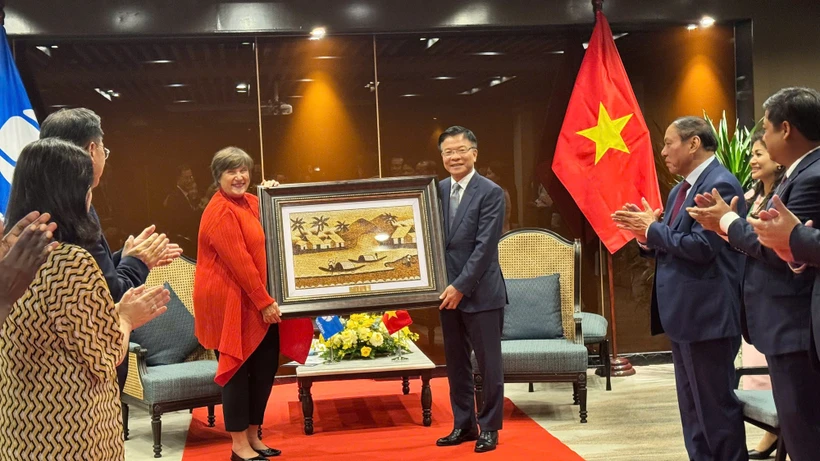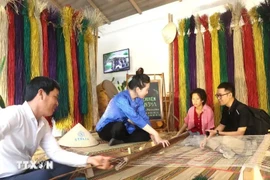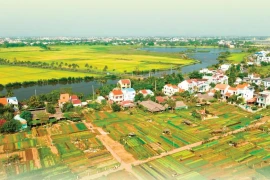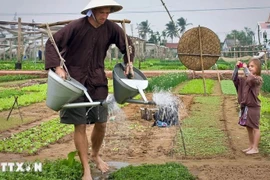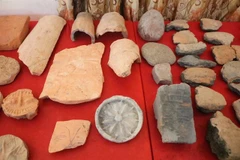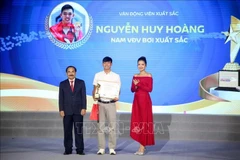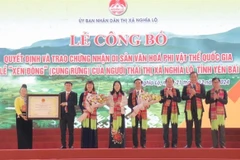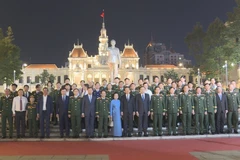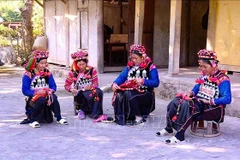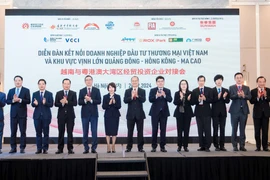Quang Nam (VNA) - Vietnam is increasingly focusing on the sustainable development of rural tourism, harnessing the natural beauty, traditional culture, and local communities to foster long-term economic growth, emphasised Deputy Prime Minister Le Thanh Long at the First UN International Conference on Rural Tourism, organised by UN Tourism in the central province of Quang Nam from December 9-11.
Long highlighted Vietnam's readiness to collaborate with the global community and UN Tourism to develop rural tourism with initiatives such as "one village, one product," "each citizen is a tourism ambassador," and "one locality, one product." These aim to bring tourists to rural areas, enhance the local economy, and promote social development.
Rural tourism: A path to economic growth

The primary goal of rural tourism development in Vietnam is to boost economic growth, narrow the gap between rural and urban areas, and preserve the distinct cultural and environmental values of rural areas. “UN Tourism has launched a programme promoting tourism for rural development, which aims to protect natural and cultural resources while empowering local communities and creating jobs. This initiative aligns with the goals for sustainable economic, social, and environmental development," said Long.
Vietnam’s rich cultural heritage and scenic landscapes provide a solid foundation for rural tourism. With over 70% of the population living in rural areas, the country has significant advantages in terms of cultural identity and natural resources. The government has been promoting unique agricultural and rural tourism products that showcase the country's diverse offerings, from eco-tourism to cultural experiences. This approach not only attracts tourists but also strengthens local economies, creates jobs, and helps preserve traditional crafts and agricultural practices.

In recent years, rural tourism has played a significant role in transforming rural areas across Vietnam. Many previously isolated and underdeveloped regions have experienced a renaissance, becoming more attractive to both tourists and investors. Tourism has helped preserve valuable landscapes, ecological sites, and traditional cultures, while also narrowing the income gap between urban and rural populations.
According to Deputy Minister of Culture, Sports, and Tourism Ho An Phong, rural tourism has contributed greatly to giving a facelift to rural areas, turning those with limited development potential into "livable places".
Challenges and solutions for sustainable development

Despite the positive trends, Vietnam's rural tourism faces several challenges, especially in remote areas. Many rural tourism models are small-scale, lacking professional management, infrastructure, and sufficient investment. These areas often struggle with limited access to markets and have insufficient human resources for tourism development.
To address these challenges, experts suggest implementing targeted policies to develop rural tourism in a sustainable way. Sustainable rural tourism can help diversify the economy, strengthen ties between tourism and agriculture, and empower local communities, especially vulnerable groups like women and youth. Additionally, experts stress the importance of ensuring that tourism benefits are distributed equitably, providing job opportunities while protecting natural and cultural resources.
Zoritsa Urosevic, Deputy Secretary-General of UN Tourism, emphasised the value of combining nature, local communities, and traditional culture to create a unique tourism experience that benefits both the local economy and the environment. Statistics show that nearly 84% of people in rural areas face difficulties accessing basic services, infrastructure, and job opportunities. Rural tourism, if developed sustainably, offers a solution to these challenges by creating new opportunities and fostering social inclusion.

Experts also highlight the importance of retaining young people in rural areas and involving them in tourism development. Empowering the youth to become tour guides and contributing to the promotion of rural tourism is essential for the sector’s future, said Sandra Carvão, Chief of Tourism Market Intelligence and Competitiveness at UN Tourism. Young people can help bridge the gap between traditional culture and modern tourism, creating innovative solutions that attract visitors and improve the livelihoods of rural communities, she added.
In conclusion, sustainable rural tourism offers a promising pathway for Vietnam to address its economic, social, and environmental challenges. By focusing on local culture, preserving natural resources, and empowering communities, rural tourism can contribute to the country's long-term development, making rural areas not only economically vibrant but also desirable places to live./.
